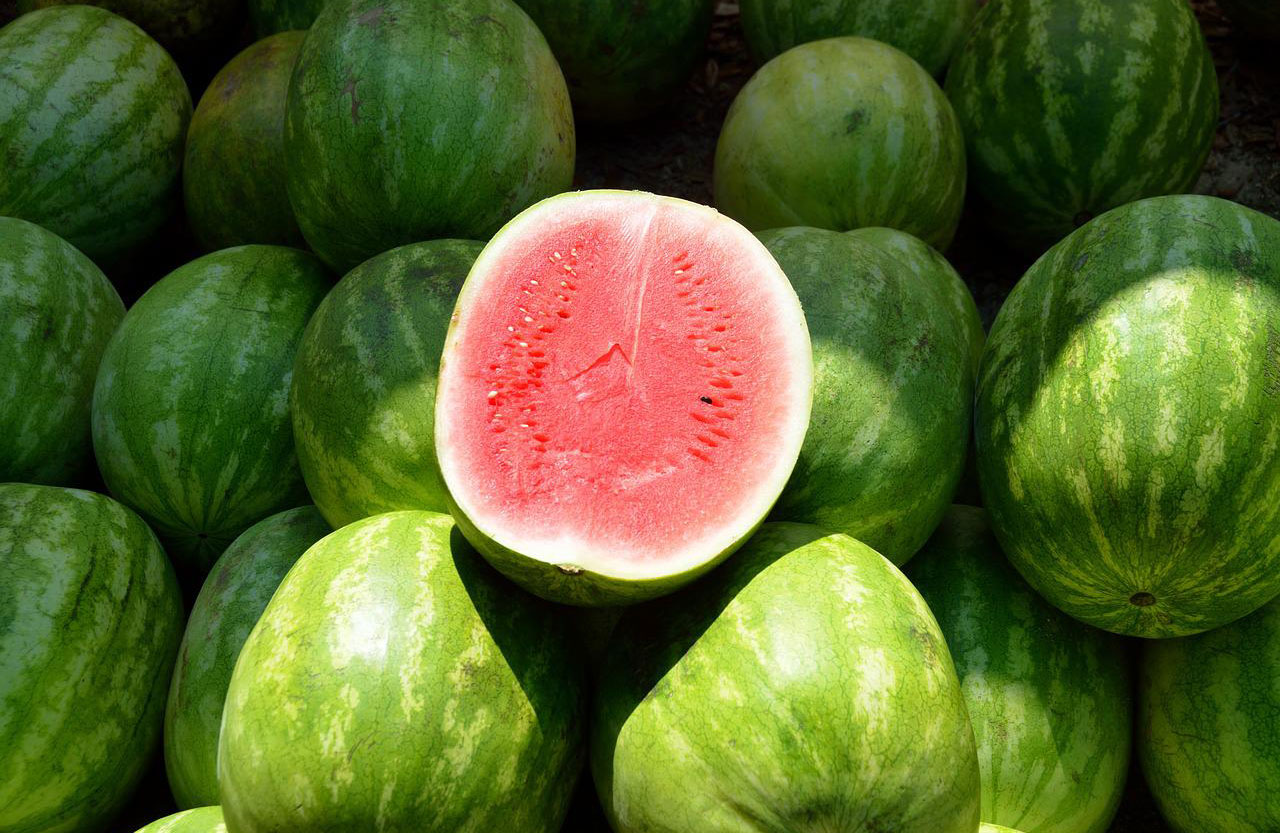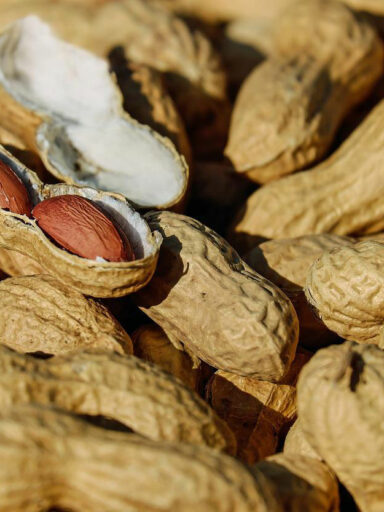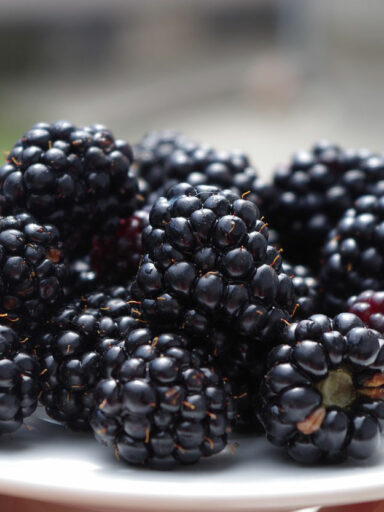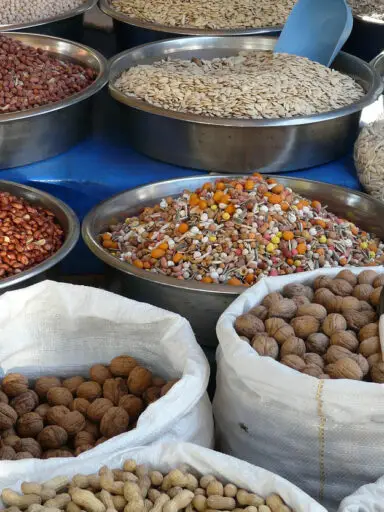The watermelon is an annual plant that grows as a vine and produces very large edible fruit bearing the same name. It is a berry that botanically is called a pepo. It contains hard smooth skin that is green in color with dark green stripes. The outer layer is riddled with yellow spots
This fruit bears a sweet juicy pulp that ranges from white and yellow to pink and deep red in color. it contains several small black seeds ranging from white to black in color.
Watermelon is native to Southern African regions. The fruit is ready for harvest about three and a half months after planting. The plant vine can grow and bear stems that are up to 3 meters long. This is similar to those such as cantaloupe, squash, and pumpkin. It bears large hairy pinnately-lobed leaves that grow very course with age.
The fruit can grow up to 20 cm in diameter, but when properly cultivated it can reach upwards of 60 cm. The world’s largest producers of watermelon are China, Turkey, Iran, Brazil, and Egypt.
Watermelons are generally available throughout the year in markets. Fruit without clear signs of mold should be selected for purchase. They should not bear any bruises or cuts. The fruit should feel heavy for its size with a rind that is moderately smooth, glossy, and vibrant in color.
The fruit should be stored in a cool, dry, and dark place in a well-ventilated area. Cut fruit should be stored in a refrigerator.
Preparation of Watermelon for Consumption
The watermelon should be washed in cool running water to remove dirt, soil, insect larvae, pesticides, and fungicide residue. The fruit can be eaten raw as it is as a refreshing snack.
The fruit can then be cut as desired with a sharp knife according to the purpose for which it is being cut. The inner pulp together which the seeds can be ingested.
The flesh can be cut into slices, cubes, scooped into balls, or similar shapes.
The cut pieces can be added to the fruit salad. It can also be used as an ingredient in dessert preparations. The seeds can be roasted and eaten as a snack as is the case in several Asian countries.
The rind can also be cooked and eaten as a vegetable as is the case in several South American countries.
The flesh can be squeezed and drank as a refreshing drink or used as an ingredient in a cocktail, fruit cocktails, and smoothie drinks. Commercially it can be turned into a jam.
Nutritional Benefits
Watermelon is rich in antioxidants, electrolytes, and water. They contain just 30 calories per 100 grams and contain no cholesterol or fat. It is a rich source of vitamin A and vitamin C and the carotenoid pigment, lycopene exceeding that in tomatoes.
It is a good source of pantothenic acid, pyridoxine, and thiamin. It is a good source of potassium, copper, and iron. It is also a good source of magnesium.




